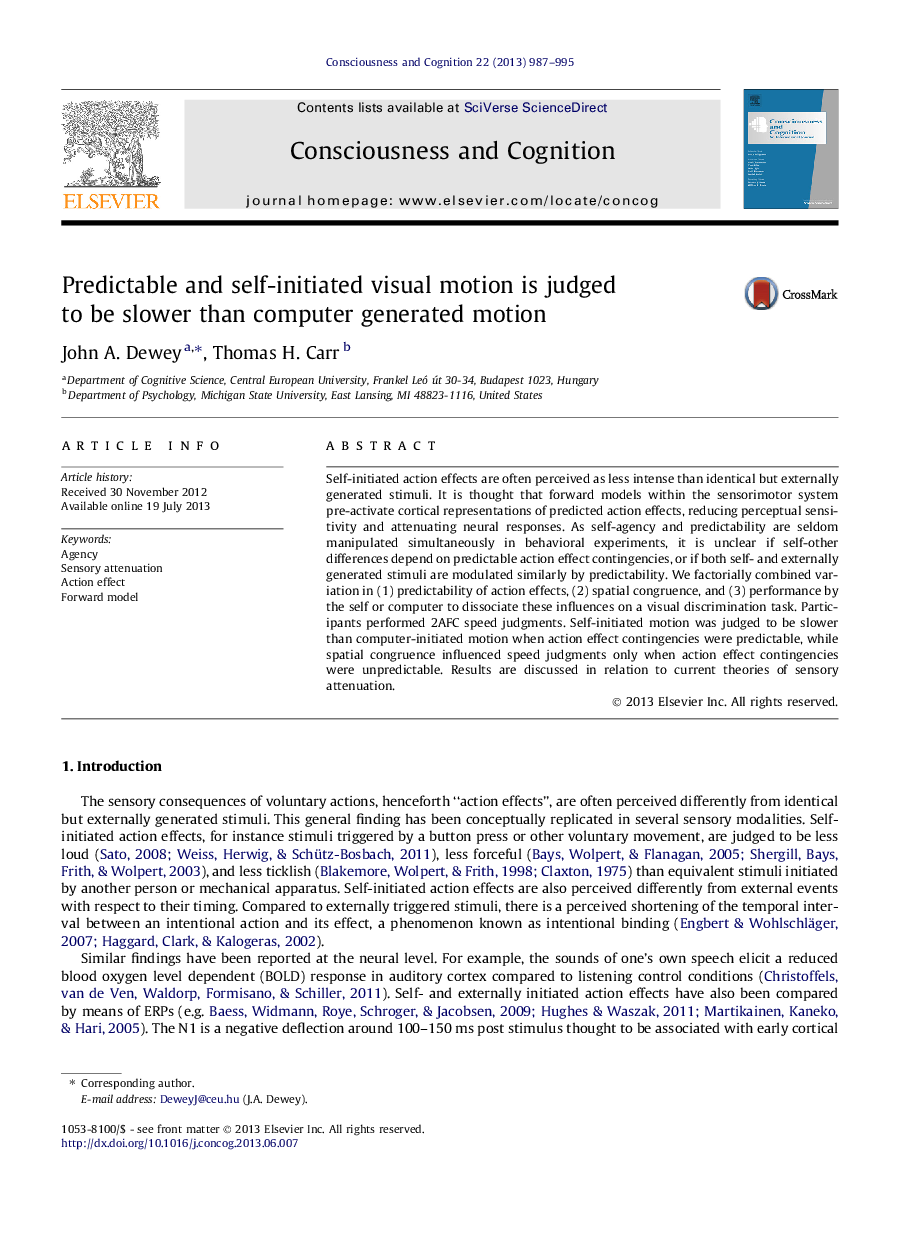| Article ID | Journal | Published Year | Pages | File Type |
|---|---|---|---|---|
| 10458473 | Consciousness and Cognition | 2013 | 9 Pages |
Abstract
Self-initiated action effects are often perceived as less intense than identical but externally generated stimuli. It is thought that forward models within the sensorimotor system pre-activate cortical representations of predicted action effects, reducing perceptual sensitivity and attenuating neural responses. As self-agency and predictability are seldom manipulated simultaneously in behavioral experiments, it is unclear if self-other differences depend on predictable action effect contingencies, or if both self- and externally generated stimuli are modulated similarly by predictability. We factorially combined variation in (1) predictability of action effects, (2) spatial congruence, and (3) performance by the self or computer to dissociate these influences on a visual discrimination task. Participants performed 2AFC speed judgments. Self-initiated motion was judged to be slower than computer-initiated motion when action effect contingencies were predictable, while spatial congruence influenced speed judgments only when action effect contingencies were unpredictable. Results are discussed in relation to current theories of sensory attenuation.
Related Topics
Life Sciences
Neuroscience
Cognitive Neuroscience
Authors
John A. Dewey, Thomas H. Carr,
